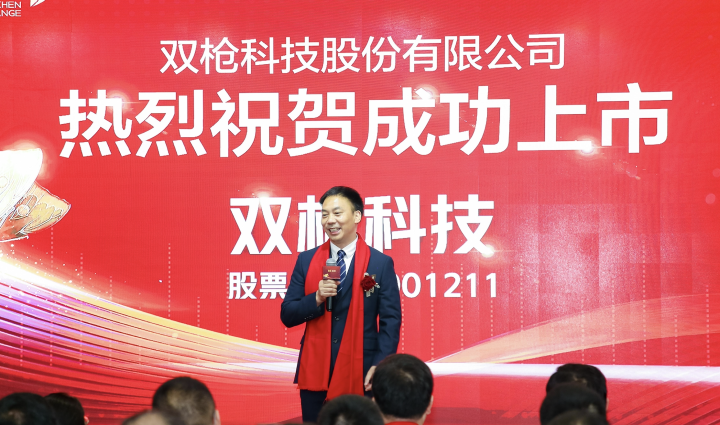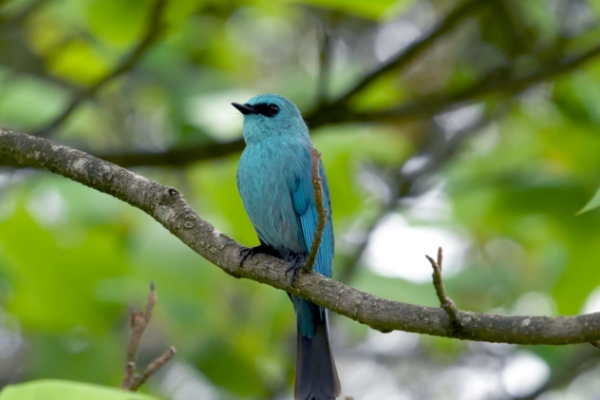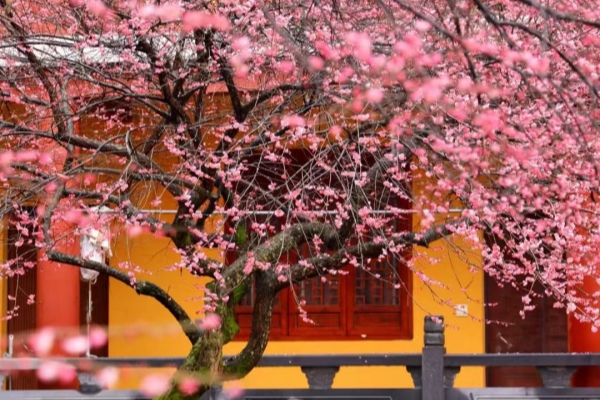Sunchat leads upgrading of bamboo industry

Zheng Chenglie, founder and chairman of Sunchat, delivers a speech at the Shenzhen Stock Exchange on Aug 5, 2021, the day the company was listed. [Photo/zj.zjol.com.cn]
Sunchat Technology Co, a leading provider of tableware and kitchenware, completed its initial public offering (IPO) in the Shenzhen Stock Exchange in August 2021, becoming the first manufacturer of chopsticks to be listed on China's stock exchanges.
Headquartered in Hangzhou, capital of East China's Zhejiang province, the company sells around 300 million pairs of chopsticks, 10 million cutting boards, and nine million cooking shovels and scoops every year. Most of its products are made of bamboo, which can be found in abundance in the province.
Zheng Chenglie, founder and chairman of Sunchat, was born and raised in Qingyuan, a remote, mountainous county in southwestern Zhejiang with dense bamboo forests. In 1995, Zheng took over a failing chopsticks factory from his elder brother and turned the business around. In 2002, Zheng registered the factory as Sunchat Technology Co.
Sunchat's business success largely lies in its deep cooperation with bamboo growers.
According to Zheng, Zhejiang once made one third of the nation's bamboo products, but a large number of the province's small bamboo factories went bankrupt several years ago as they could not afford to stop the use of small boilers and reduce the discharge of industrial wastes so as to meet increasingly stricter environmental protection standards.
As a result, bamboo forests lost their economic value in many localities and were even replaced by other forests. "Compared with its peak, the price of bamboos had fallen by more than half to 650 yuan per metric ton in Qingyuan and less than 500 yuan per ton in Hangzhou and Anji," Zheng recalled.
"The only solution was to build a bigger and stronger manufacturer that can inform farmers of the market opportunities and directly purchase bamboo from them, encouraging them to keep up with the trade," Zheng said.
Over the past two decades, Sunchat has maintained a 20-percent growth rate in sales and invested heavily in developing more eco-friendly technologies for bamboo processing. Today, Sunchat is capable of making cutting boards, chopsticks, and toothpicks from the upper, middle, and lower sections of moso bamboo respectively.
Sunchat has also established factories in Yuhang district in Hangzhou and in Qingyuan and Longquan counties in Lishui.
Its newest factory in Qingyuan's Longgong township, which was inaugurated on Jan 1, is even capable of smart manufacturing. The new factory is expected to generate an average annual revenue of two million yuan ($315,318) from each worker it hires.
According to Zheng, the factory, which spans 53 mu (3.53 hectares), is capable of processing all eight million pieces of bamboo that are cut down in Qingyuan annually in an eco-friendly manner.

 Lishui establishes intelligent biodiversity monitoring system
Lishui establishes intelligent biodiversity monitoring system New fungus species discovered in Qingyuan
New fungus species discovered in Qingyuan Lishui transforms weirs to aid fish migration
Lishui transforms weirs to aid fish migration